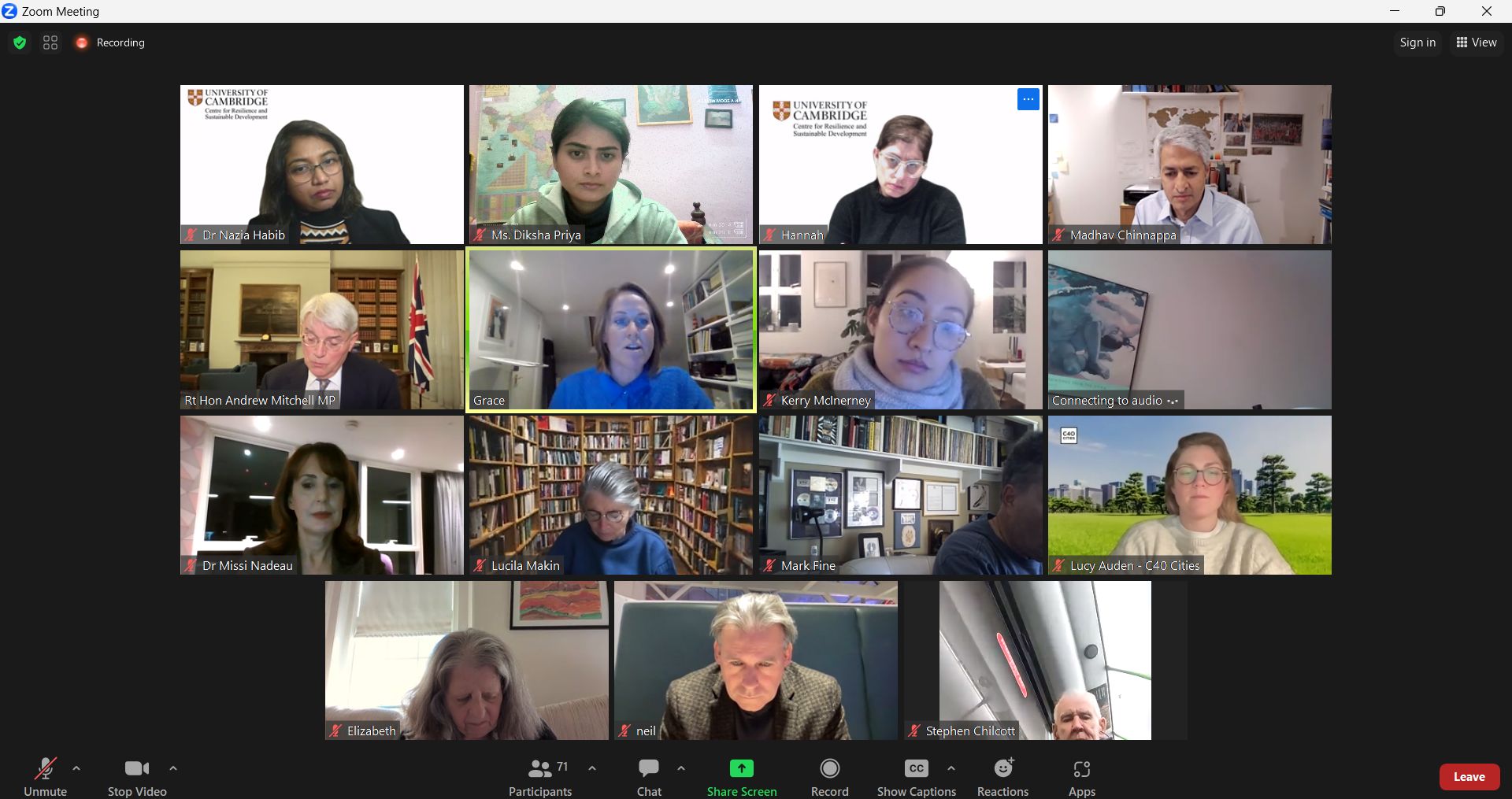Co-chaired by the Rt Hon Andrew Mitchell MP, Minister for Development in Africa and the UK, and Prof Nazia M Habib, Founder and Director of the Centre for Resilience and Sustainable Development, University of Cambridge, and produced by Mr Steve McCauley, the panel discussed the global crisis of trust in reliable, accurate sources of information and news. The co-chairs welcomed speakers Dr Kerry McInerney of the Leverhulme Centre for the Future of Intelligence, Grace Davies of BBC Media Action, and Madhav Chinnappa, Former Director of News Ecosystem Development at Google.
The panel articulated concerns regarding this crisis, such as the destabilisation of democracy through erosion of trust in democratic institutions, processes, and elections. The panel addressed the part of AI and social media in spreading disinformation, misinformation and conspiracy theories through deep fakes and data manipulation. Concern over mendacious politicians telling “big lies” to credulous audiences, funded by partisan media and shadowy donors with hidden agendas, and state censorship of legitimate news channels, all adds to this crisis of trust. The panel asked what can be done to rectify this situation.
Rt Hon Andrew Mitchell MP said, “Maintaining trust in news outlets is essential for the progress of development and the preservation of democracy."
Prof Nazia Habib said, "Resilience in the face of misinformation requires research, policy creation, and navigation of complex issues to ensure a sustainable path forward."
Grace Davies explained that BBC Media Action, who train and support independent media throughout the world. Explaining that distrust in institutions and traditional media is fuelled by targeted disinformation, she called for increased investment in maintaining information integrity and highlighting the relationship between information integrity and democracy. She also advocated for media literacy training as a means to rebuild trust and highlighted how distrust in collective social action and science is negatively impacting sustainability goals.
Grace Davies said, "Investing in information integrity is not just a moral imperative, but a critical investment in the development and future of our societies."
Dr Kerry McInerney discussed the impacts of AI on global trust and disinformation, explaining that most of the influential technology is being developed by for-profit groups whose responsibility to public citizens is questionable. She highlighted the importance of civil society groups, media literacy, understanding human psychology, and the ultimate responsibility of the government to regulate these companies and balance private tech companies’ power, including the ways in which they are permitted to advertise.
Dr Kerry McInerney said, "Understanding the power dynamics and psychology behind the spread of disinformation is crucial in developing effective strategies to combat it."
Madhav Chinnappa then presented on the concept of a news ecosystem and its relation to trust. This ecosystem includes all constituent parts of how humans access information, including news organisations, tech companies, mobile phone companies and providers, even governments and NGOs in a complex interrelated system. He explained that there is not full consensus between big tech companies about how disinformation might be tackled. Further, he argued that trust itself is a difficult concept, as it is individually appropriated and subjectively given. As such, he suggested that any way forward would need to be both multifaceted and highly nuanced. He went on to emphasise a need for social change and psychological understanding to combat misinformation.
Madhav Chinnappa said, "Building trust in the news ecosystem requires a deeper understanding of human psychology and a collective responsibility to invest in public interest media."
Suggestions that media literacy could be increased with appropriate civil initiatives, possibly including training children not only to be safe but also smart online, and suggestions that companies be more closely regulated were the topics of discussion during the question-and-answer section.
The Centre for Resilience and Sustainable Development intends to carry out further collaborative action-research surrounding these issues, in order to add our transdisciplinary expertise and complex systems approach to solving such multifaceted issues.
As Prof Habib said,
"AI's transformative potential requires a global commitment to governance and collaboration. As we explore critical topics like media literacy and decision-making in developing nations, the Sinews event exemplifies the power of collective insights. In navigating the fast-paced AI landscape, strategic partnerships, such as BBC Action, become catalysts for building capacities and fostering a resilient, informed society."

